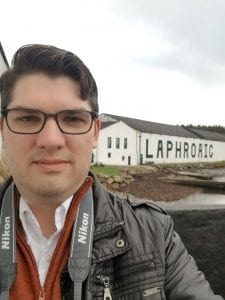Joshua J. Dyck is a political scientist and survery researcher who frequently comments on elections and public opinion. He received his M.A. and Ph.D. degrees in Government in Politics from the University of Maryland and holds a Bachelor’s degree in Economics and Poitical Science from Western Washington University. He is Professor of Political Science and Director of the Center for Public Opinion at the University of Massachusetts, Lowell (2012-present). Previously, Dyck was Associate Professor of Political Science at the University at Buffalo, SUNY. He also spent a year as a Dissertation Fellow at the Public Policy Institute of California during the 2005-2006 academic year.
Professor Dyck studies American politics, with a focus on public opinion, voting behavior, elections, parties, political communication, state politics, and racial and ethnic politics. Much of his research is motivated by the interplay between public opinion and different social and institutional settings, examining the way that citizens react to democratic environments and political institutions.
The largest subsection of his research has focused on direct democracy, and particularly on the secondary effects of ballot initiatives on citizens in the American states.
He is the author of Initiatives without Engagement: A Realistic Appraisal of Direct Democracy’s Secondary Effects (2019, University of Michigan Press, winner of the 2020 Virginia Gray Best Book Award from the State Politics and Policy Section of APSA) and CQ’s The Guide to State Politics and Policy (CQ/Sage Press, 2013). He has published more than 2 dozens peer-reviewed articles in leading scholarly journals including The Journal of Politics, Public Opinion Quarterly, Political Behavior, Political Research Quarterly, Social Science Quarterly, Electoral Studies, and American Politics Research.
In his spare time, Professor Dyck is an avid tennis player (NTRP 4.5 rating) and he enjoys collecting and sampling ‘wee drams’ of single malt whiskies, Armagnacs from the Carter and Reagan administrations, American bourbons and Canadian ryes.

